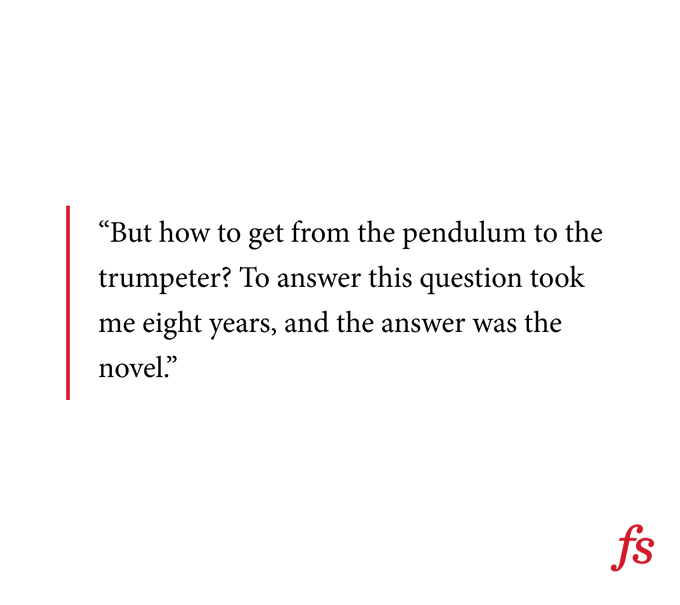"The more you know, the less you diversify."
Explore the world.
Nearly everything is really interesting if you go into it deeply enough.
"If you're not at college to be challenged by different ideas, you don’t belong at college in the first place. And if you’re not in college, welcome to the real world, where nobody...dreams of giving you a space 'safe' from ideas that might upset you."
Umberto Eco was one of the bestselling authors of all time.
In his book "Confessions of a Young Novelist," he shared his unique insights for great writing.
Here are 4 rules to follow for exceptional creative writing:
Rule 1: Start with a seminal image
Each of Eco’s novels began with a striking image around which he constructed an elaborate narrative.
For "The Name of the Rose", he began with the image of a monk being poisoned while reading a book.
For "Foucault’s Pendulum," he began by imagining the juxtaposition of two things: the device made by physicist Léon Foucault in 1851 to demonstrate the earth’s rotation and a trumpeter playing in a cemetery on a sunny morning.
Once you pick your image, you close the door on hundreds of other choices. To make that image work, you need to build your world so that image fits seamlessly, and so there are many elements that you can no longer incorporate.
Rule 2: Don't expect inspiration to come out of nowhere
Curiosity is a much more useful starting place for a writer than inspiration.
To illustrate this, Eco gives the example of Alphonse Lamartine.
The French poet claimed to have written one of his most famous works in a flash of inspiration.
After his death, a plethora of versions of that poem were found in his study. He'd been working on it for years.
Rule 3: Create an entire world for your story to live inside
Whether you aim to set your story in the so-called “real world” or to create an entirely fabricated one, you need to know as much as possible about that world.
Writing of the time he spent researching for novels, Eco explained:
Rule 4: Enforce constraints on your writing Counterintuitively, constraints lead to greater creativity and make it easier to come up with ideas. Eco writes:
Stories themselves have built-in constraints called the beginning and the end.
No work of fiction can be everything to everyone.
All choices in storytelling introduce constraints, and employing them deliberately is a powerful tool for a writer.
Eco’s advice in "Confessions of a Young Novelist" offers some excellent signposts for aspiring fiction writers. But remember: “In order to write a successful novel, one needs to keep certain recipes secret.”




No comments:
Post a Comment